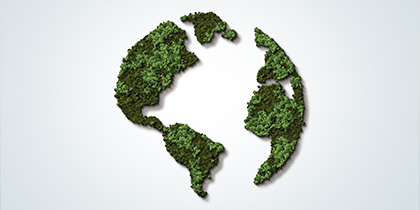B Corp certification allows companies to make their social and environmental contribution measurable and demonstrable. Find out exactly what this certification entails and why it is a valuable pursuit for organizations looking to become more sustainable in this blog.
What is B Corp?
B Corp stands for Benefit for all and is an international certification for companies that want to create value for people, the environment and society in addition to profit. The B Corp certification assesses companies based on their social, environmental and economic performance. The goal is to motivate companies to not only be the best in the world, but also the best for the world.
The five assessment areas of B Corp
To become B Corp certified, companies must meet high standards in the following five areas:
- Governance: Transparency and responsible governance. Consider ethical policies, legal compliance and a clear mission that goes beyond just making a profit.
- Employees: B Corp assesses issues such as fair pay, job security, employee well-being and opportunities for development.
- Customers: Products and services must be ethical and add value, with customer satisfaction and transparency playing an important role.
- Community: Involvement in the local community is measured here, for example, support for local initiatives and promotion of diversity and inclusion.
- Environment: Companies are evaluated on their environmental performance, such as CO2 reduction, sustainable use of raw materials and responsible waste management
How does certification work?
The certification process is thorough: companies must achieve a minimum score of 80 (out of a maximum 200) as well as prove that they operate in a socially and environmentally responsible manner, for example in the areas of energy use waste and water management, human resources management, diversity and transparency.
To complete the certification process, companies must document the impact of their decisions on all their stakeholders in their statutory documents. A B Corp certification is not a one-time thing, as every three years you are assessed for meeting the (increasingly high) standards for recertification.
B Corp in figures
Since its inception in 2006, B Corp has grown into a global movement with more than 10,000 certified companies in nearly 100 countries. Well-known brands such as Patagonia, Tony's Chocolonely and Ben & Jerry's have achieved certification.
In the Benelux there are more than 500 B Corps active, including several Belgian and Dutch companies. For example, Belgian chocolatier Belvas is B Corp certified; the company is known for its organic and fair trade chocolate. A well-known example from the Netherlands is Dopper, which produces reusable water bottles to reduce plastic waste.
.jpg?width=780&height=585&name=infographic%20sjabloon%20Milgro%20(25).jpg)
Why is B Corp relevant in today's economy?
Consumers, investors and employees increasingly value companies that take responsibility and contribute to a better world. B Corp provides concrete tools and shows that positive impact and profitability can go hand in hand. It supports companies in achieving environmental and social goals and encourages responsible business practices.
Read also

B Corp™ certificering: visie Milgro













